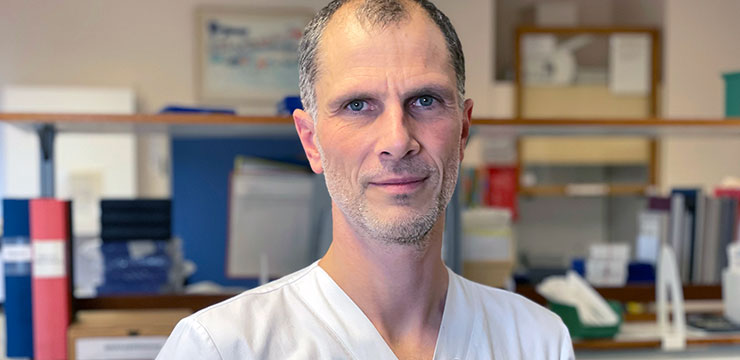Omicron a challenge for COVID researchers: 'The spread of the disease is faster than science'

When SARS-CoV-2 and COVID-19 began spreading, most things were unknown about the virus and the disease it causes. Research resources were quickly prioritized to find answers. At Skåne University Hospital, a dozen studies were initiated in 2020, where the researchers examined various treatment methods for COVID-19, whether COVID-19 was an airborne infection, and how it affected the healthcare staff's working environment.
“A big challenge during these years has been to keep up with the pace. Research is usually a slow process with a lot of paperwork. But with COVID-19, we have needed to do research differently and faster – at the same time as the conditions have constantly changed, says Magnus Rasmussen, specialist in infectious diseases at Skåne University Hospital and professor at Lund University.
Study on vaccination affected
One of the biggest changes so far came on November 29 2021, when the first case of the virus variant Omicron was discovered in Sweden. The discovery led to much of the ongoing COVID research being temporarily put on hold.
“We had collected a lot of material from patients with the Alpha and Delta variants. But since Omicron is so different from the previous variants, we have to redo the analysing of the material and ask completely different questions.”
One of the studies affected is the vaccination study COVERS, where researchers want to investigate how long there are antibodies left in the body after COVID-19 infection. Blood samples have been collected from thousands of patients, but if the study should produce results that are valid for Omicron, new analyses aimed at that particular variant need to be performed.
"The spreading of the disease is faster than science. We have stated this many times during this pandemic. It places high demands on us as researchers and it is very rewarding to try to find new ways forward.”
Looking forward to Omicron studies
Magnus Rasmussen is looking forward to results from an ongoing study conducted in Skåne, where the Omicron variant is examined. The study hopes to determine how seriously, or not seriously, you become ill if you become infected with Omicron.
“From a global perspective, I very much hope that new so-called antiviral pills will prove to be as effective as preliminary studies suggest. It would mean that in addition to the vaccine, we would also have a working drug against COVID-19 if another wave comes”, says Magnus Rasmussen.
Examples of studies currently conducted by Skåne University Hospital
- COVERS: A large study of COVID-19 vaccination in Skåne
- NETS-C19: A study of inhaled drugs against COVID-19
- Long-term COVID: A study of the long-term effects of COVID-19
- SWECRIT: A study of biomarkers in COVID-19

